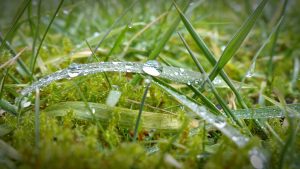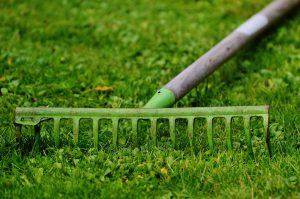Conventional gardening wisdom says that you should fertilise your plants either just before or during their peak growing season. The cold, dreary conditions of winter aren’t the period in which many plants are doing their best work, particularly when it comes to your lawn.
Grass can be divided into two categories; cool season and warm season. The bulk of Australians will likely have a warm season lawn, including such turfs as Buffalo, Couch and Kikuyu. As the name implies, warm season grass prefers the warmer weather, with its peak growing period usually occurring in autumn, when the warmth of the summer is still in the soil, but the worst of the baking heat has passed. These grasses often go dormant in the depths of winter.
Cool season grasses, in comparison, don’t mind cooler soil. They don’t often go dormant over winter, but usually experience their peak growing periods in the spring, when the soil is still cool, but sunlight is a little easier to come by.
So Why Fertilise in Winter?
If no Australian grass experiences its peak growing period in winter, why bother fertilising in that period at all? The reason to fertilise in winter is not for thriving purposes, but surviving purposes. It can be a tough period for grasses, with a combination of low sunlight and biting cold working to stunt the growth of your lawn. A winter fertiliser can help to get your lawn through this trying period.
There are a range of purpose-built winter lawn fertilisers available. They are commonly high in iron which helps to strengthen the lawn over the colder months, helping your grass to retain its colour.
For cool season lawns there is an added benefit, as winter fertilising will lay the foundation for strong growth in the spring. Keeping your lawn happy and healthy in the months leading up to its peak growth period will make for a stunning looking lawn for the rest of the year.
Winter Fertiliser Application
As with any fertiliser, it’s important to closely follow the manufacturer’s instructions when it comes to applying it. Generally speaking, however, it’s good practice to spread the first dose of your winter fertiliser just before winter arrives (around mid to late May), which will assist the lawn in getting through the change of season. If you allow the lawn to be hit with the first cold snap of winter unassisted, you could find yourself on the back foot for the rest of the season.
The next (and last) application should be spread around two months later, in mid to late July. This application is vital, as your lawn will then be experiencing the depths of winter, and will need all the help that it can get. This should be enough to sustain it for the remainder of the cold months.
Tempering Your Expectations
Unlike the rest of your fertilising efforts, it’s important to recognise that winter fertilising isn’t about generating dazzling growth from your lawn. It’s simply about keeping your lawn healthy enough to bounce back when the temperature rises. This being the case, don’t be disheartened when you don’t see instant results from your winter fertilisation regimen.
If your lawn appears to be in bad health, and you spread a winter fertiliser, don’t expect it to be able to turn the problem around. But do expect your lawn to be healthier and better able to handle conditions by this time next year.
Winter lawn fertilisation isn’t an obvious part of your lawn maintenance routine, but it is just as important as anything else. If you want your lawn to be healthy and happy year-round and continue to look its very best, you’ll be wise in including winter fertilisation in your lawn care regime.
Winter fertilisation is an investment in your lawn, and one that can continue to pay dividends months down the track.
If you’ve got any other lawn care queries, don’t hesitate to contact the friendly team at McKays today.


